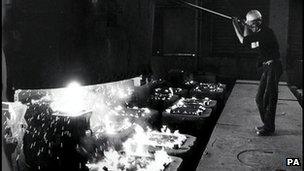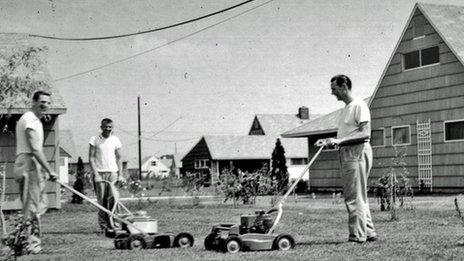The road to nowhere...
- Published
- comments
The American middle class has been hit hard by the ongoing global economic crisis
At a conference on unemployment in Oslo, Norway, a year ago I heard two things that stuck in my mind as bombshells waiting to explode.
The first was that the last time global unemployment was this high was in the 1930s - and we all know what happened then (source: Dominique Strauss-Kahn, former head of the IMF, but that's another story).
The second was that the top 1% of Americans took just 8% of the nation's wealth back in 1979 and now take 25%.
I increasingly think I was wrong to see them as two separate things; they are simply two sides of the same discontented coin.
Americans, by and large, do not mind other people getting rich. It is one of the big differences between them and Europeans.
A steel mill worker in Iowa told me during the 2008 presidential campaign that he did not mind John Edwards, former Democratic candidate for the presidency - yet another story - getting a $400 (£249) haircut because the candidate had worked hard and earned his fortune honestly.
It was, he said, part of the American Dream and something all citizens could aspire to.
Closed system
But now the evidence suggests all citizens cannot aspire equally.
As the rich take an ever greater share of the Gross Domestic Product (GDP) there is less of it for everyone else - that's the thing about pies.

Economic hardship is eroding the old belief that any American could get rich through hard work
The people at the bottom are finding it harder and harder to get to the top. Middle-class jobs are being replaced by machines and Chinese workers.
The welfare state - the "free" education, health and welfare that might help the poor get their first leg up - is fast eroding.
The result: America's famed mobility system has got blocked.
The truth is that a De Moines steel mill worker was never going to be a multi-millionaire, but the Dream was founded on him believing that he could be.
When the belief goes, you get discontent.
We are still a long way from 1930s Europe, but when you get high unemployment combined with a growing sense that it is not even worth trying to move up because the system is a closed one, then the outcome does not look good.
- Published8 November 2011
